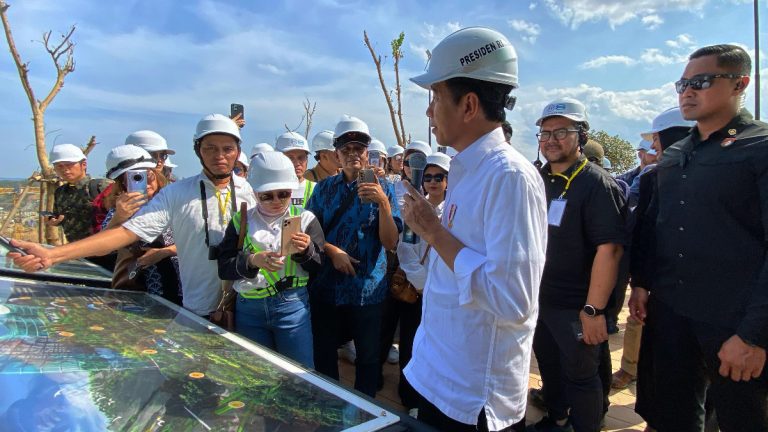As last week’s massive tech sector layoffs hit tens of thousands of employees at Twitter, Meta, and beyond, workers are pouring onto anonymous workplace discussion forum Blind to vent. Over the last few weeks, Blind, which allows employees to post their unvarnished feelings about their workplaces anonymously, has been abuzz with anxiety, rumors, and discontent.
Founded in 2013 in South Korea, the now California-based Blind was initially conceived as a response to South Korea’s intensely hierarchical work culture. The company now operates across both countries and counts over 7 million users from 300,000 companies. Blind’s investors include SoftBank Ventures Asia and Mainstreet Investment.
In addition to hosting open forums and private channels, Blind often runs surveys for its users about their experiences at particular companies and within their industries. Last week, Blind conducted a survey of over 400 Twitter and 1,100 Meta employees. The findings were grim: Only 2% of Twitter employees said they’d recommend the workplace to their friends or family, and just 1% said the recent layoffs had been carried out in a respectful and dignified manner. Meta fared a bit better: A third of respondents said the company’s recent layoffs were conducted in a respectful way.
In an interview with Rest of World conducted on the heels of the Twitter layoffs, Blind’s CEO and co-founder, Sunguk Moon, shared more survey data, and elaborated on morale at Twitter, what employees really think of Elon Musk versus Mark Zuckerberg, and which companies might be laying off workers next.
The interview has been condensed and edited for clarity.
Outlets like The New York Times, the Verge, and the newsletter Platformer are all turning to Blind to get a sense of how workers are responding to the wave of layoffs. What are you seeing, specifically from Twitter and Meta?
With every layoff, we run these surveys to try and figure out the pulse of the remaining staff. We’ve got 7,100 verified Twitter employees on the platform, so that’s about 95% of pre-layoff numbers — actually, 1,300 of them signed up in the last 30 days.
So we surveyed 442 Twitter employees remaining at the company and asked them: Do you believe Twitter will succeed under Elon Musk’s management? Eighty-nine percent said “no,” 11% said “yes.”
That’s harrowing.
Yeah. We also asked after the layoffs if they’d recommend Twitter as a workplace to their friends and family — 2% said “agree” or “strongly agree.”
One percent of respondents believed that employees had been treated “with dignity and empathy during the layoffs,” and 63% believed that “steps could have been taken” to avoid mass firings, including business restructures or leadership decisions.
1% of respondents believed that employees at Twitter had been treated “with dignity and empathy during the layoffs.”
What about Meta and its 11,000 sacked employees?
What was insane was Mark Zuckerberg decided to send an email out to every employee at 3 a.m. Pacific time, long after most employees had gone to bed. So, we saw a spike in activity around 3 a.m. to 3:15 a.m. when people were receiving the email, and that lasted throughout the entire day into the night. Hundreds, thousands of comments and Meta users on Blind trying to compare notes and work out: Are you affected?
They started, you know, self-identifying, trying to pattern-match and figure it out — was it mostly the more tenured folks or the newer folks? How’s WhatsApp doing versus Reality Labs? They’re looking at geographic distribution: guys saying, oh, well, London and Tel Aviv, or Singapore, they’re hours ahead — perhaps they’ve heard first, and maybe they can give us insights.
We ran a survey of 1,179 remaining staff at Meta, too. [In contrast to Twitter], 55% believed laid-off employees had been treated with dignity and empathy. Thirty-one percent said they would still recommend the company to friends and family, though 82% believed steps could have been taken to avoid the layoffs.
How are the CEOs coming off in all this — Elon Musk and Mark Zuckerberg?
I think the starkest and most frank representations of Meta and Twitter employees’ perspectives about Mark Zuckerberg and Elon Musk, respectively, are the employee reviews. For Twitter, October reviews focused on great benefits, good work-life balance, and an open culture. In November, the reviews highlighted poor compensation, a lack of internal communications, and unreasonable working hours. [Musk acquired Twitter on October 28.]
Among the Blind community at large, Elon is a bit more polarizing. These discussion threads are fairly representative of both sides [of the discussion]: “How is Musk Twitter firings funny?” and “Can we stop targeting Twitter employees?”
In contrast, Meta’s employee reviews this month (November 1–10, 2022) are far more consistent. The reviews focus on generous compensation and employee benefits, smart colleagues, and the belief that opportunity is plentiful. Complaints are primarily focused on Meta’s Performance Summary Cycle being responsible for micromanagement or challenging to master and earn promotions. [Meta’s layoffs happened on November 9.]
Outside of Meta [employees], many on Blind have a positive view of Zuckerberg (“Zuck handled the layoff pretty humanely”), while others worry Meta’s layoffs may mean the end of the generous “total compensation” pay packages many in tech earn (“Every tech worker should be afraid of Meta layoffs”).
Can you talk a little about Blind’s roots in South Korea?
Yeah, I started my career in [South] Korea. I founded a company in 2005, one like TripAdvisor — it was acquired by Naver, one of the tech giants [there]. At the time, Naver had more than 4,000 employees, and also a very hierarchical, very strict company culture. It was so different from the startup scene — seeing people, you know, competing and competing with each other. Everyone looked pretty serious and unhappy all the time.
And so, I accidentally found an anonymous bulletin board on Naver’s intranet. And there, I was shocked again, because it felt like a totally different world. People cheered, motivated each other. And there were a lot of constructive discussions as well. And I thought, how can the culture be different among the same people at the same company?
After a while, the company shut it down — there were discussions that one of the founders disliked, like that the company was giving too much stress to employees, issues about the company strategies and projects. So I came up with the idea to create an independent bulletin board. I knew it had to be created by a third party so the company couldn’t shut it down.

So, according to the Blind chatter, who might be next to go in the tech world?
There are rumors about potential upcoming layoffs at Amazon (Alexa or robotics units), Twilio, and Qualcomm. [On November 14, reports emerged that Amazon planned to slash approximately 10,000 jobs.]
So what’s your verification process for users, and how do you know what they’re saying is in good faith?
It’s not like Reddit, where you can just claim: My friend’s a doctor, I’m a doctor, let me give you some kind of fake medical advice. You have to use your work email address, and so that’s how we verify your current workplace. That company tag follows you around.
In terms of the conversations that they have, there’s no incentive for trolling or being too boastful, because there’s no profile system, there’s no reputation system. Because [if there’s misinformation], there’s tens of other Google employees, and very quickly, because they’re so active, they’ll say, “No, this isn’t true.”
Surely there are some people who come to stir the pot?
If I come in and troll or throw bombs, it’s kind of like garbage in, garbage out. Because everyone is motivated to get the most out of Blind, a lot of our users are careful to not pollute the app. They have a self-interest that kind of polices them.
The second force in the same way is our community. They help moderate and flag inappropriate content. So if someone is posting like, company secrets or — God forbid — racist, horrible things, that gets filtered out very quickly.
But aren’t company secrets what people come to the app to hear?
Yes. But, you know, it’d be inappropriate if someone shared, you know, the upcoming company earnings in a public channel.
Do you have a metric for how active your members are?
We look at the sessions, so, how many times are they actually firing up the app? The average for most companies in the U.S. tends to be two sessions every single day, including weekends. For these companies that are having major events, like Meta or Twitter, it’s higher. So I think Meta is about three [checks] a day. And then, [members at] Twitter, I believe, is four to five times a day.
I think most users would consider you someone in the know. Who do you follow to keep up to date? Any industry accounts?
There are some. I follow @wallstreetoasis and @techroastshow on Instagram. The last one is some engineers from Microsoft who went into stand-up comedy.



